April 2025
Honeybee
Happy April, Honeybees! 🍯
The countdown to summer begins! The babies are as sweet as honey and as busy as bees. We have lots of reminders and announcements for the upcoming months so stay tuned! 😎🍉
Warmer weather is upon us so let’s do our best to prepare to safely enjoy it. The best summer is the safest summer!
If you would like your child to use items like sunscreen or bug spray, please remember to apply before drop-off OR you can sign a topical consent form for us to apply at school. These forms can be picked up at the front desk.
Additionally, we will be sending home any winter clothes to swap for any warmer weather clothes.
As another reminder, please remember to label all items (listed below) with your child’s first and last name! This is not only school policy, but a state regulation as well. Permanent marker or name stickers work just fine. If we notice any no-name items, we will label them with sharpies. 😄
Clothes/shoes
Wipes/diaper cream/sun screen etc.
Food containers/zip lock bags/original packaging
Bottles/pacifiers
Lunch bag/wet bag
Blankets/sheets
Upcoming Events:
May 5-9 – Teacher Appreciation Week
May 21 – Half day for ALL students
May 22-37 – School closed, teacher in-service
May 28 – First day of Summer
If you have any questions or comments, please contact Susan@creoschool.org or Nido@creoschool.org
With all our love,
Ms. Susan, Ms. Maria, Ms. Roseanna
Honeybee Team 🫶🏼




















Butterfly
Hello, again!
I wanted to show a blog entry I shared in the past about reality vs. fantasy and how children are or aren’t processing these fantasies like superman, Mickey Mouse, etc. What are your experiences with the matter?
What is Fantasy?
Fantasy is anything that is not based on reality. At a young age, giving the child real experiences until they reach an age to distinguish fantasy. TV and great fairy tales or fantasy stories with beautiful illustrations and great quality paper, but they can be introduced after the child has a good grasp of reality, which is usually after five years of age, when the brain cortex is mature and they can make a distinction between real and unreal situations.
-Fantasy gives the wrong impression of the real world.
-Many adults think using fantasy is a way to bond with the child to capture their attention, but this is based on a fantasy, itself.
-Fantasy is an escape from reality when it becomes too hard.
-Fantasy can be used to scare children, in some fairy tales.
What is Imagination?
Imagination—as opposed to fantasy—is what we want the child to experience. It is the very basis of the mind, the process by which all the impressions taken from the external world are placed at the level of abstraction. Imagination comes at a later time in a child’s life, around the age of 5. A toddler is unable to visualize an imaginary scenario, his mind is quite occupied with living out real scenarios he finds himself in daily. Giving him the right words and materials to express himself and his senses to, one day, imagine.
It is a human tendency that, along with the tendencies of observation, work, manipulation, exactness, and others, has made possible the work of man over his environment to construct civilizations
The first thing we observe is that the child’s mind is filled with a quantity of images surpassing those which he sees in the outer world. These images reveal that there is a strong force, a psychic energy, in the mind of man, something which is different from intelligence
Imagination has a sensory basis, and its construction in the mind has to be firmly established by reality. The more it is connected with the reality of the external world, the higher will be the value of its internal creations
-Once you have the reality, your brain is able/capable to imagine/create
-Often, people misunderstand and reality imagination with fantasy, but actual imagination occurs when the child has reality.
-Too much fantasy can hinder a child’s imagination—when they’re given all of the fantasy/toys, they are less motivated to imagine.
-To be able to imagine, a child needs to know reality to be able to put things together and create something.
-Abstraction can be a form of imagination.
-We all have different imaginations because all of our realities are different.
-Problem solving/flexible thinker
Reality
Reality is what you perceive through your senses, what is recognized by the cerebral cortex. With regard to fantasy, when the cortex is still immature the child cannot distinguish real from imaginary sensory input.
- The reality, brain, and senses are very important for reality. Real life experiences of walking through the grass, picking flowers, interacting with other children outside their own home are imperative for their developing senses.
- The mind must be able to organize all that they perceive in order to figure out what they think is reality. Seeing a real cockatoo is different than seeing it in a picture or seeing it on television.
- Different realities have always existed but what is their reality? Is it to see whales or giraffes daily? More likely, they will see birds or a dog cross their path more frequently. Chances of remembering the lion at the zoo will be slim or make the connection of what a lion is, at this age.
Television
What is television really transmitting to children? Can this technology be neutral, depending on how we use it, or can it interfere with the child’s emotional and intellectual growth?
Television greatly reduces real experiences. Information comes from the environment, from nature. In order to develop a rich and ordered mind, children need to be in touch with real experiences. Imagine a child is sat in front of the television or a cell phone/ tablet for an average of 4 hours a night, and possibly more on the weekends… it totals up to more than 1,500 hours a year! Can all the dimensions and sensorial experiences be gained through watching that much television? Many important natural experiences are made difficult for children. Only direct experience can be can produce personal knowledge.
Real Activities that can be done at Home
Plant flowers in your garden
Water the plants with your child
Set up an environment where your child can access their own snack to prepare on their own
Encourage art materials to express their own creativity
Look at books
Take a walk around the neighborhood
Go to the playground
Set up a Mini Obstacle course for your child in your backyard
Bicycles for the backyard
Have a conversation with your child(ren) at dinner time, not just on the ride back home!
Warmly,
Ms. Rebeca and Ms. Daisy

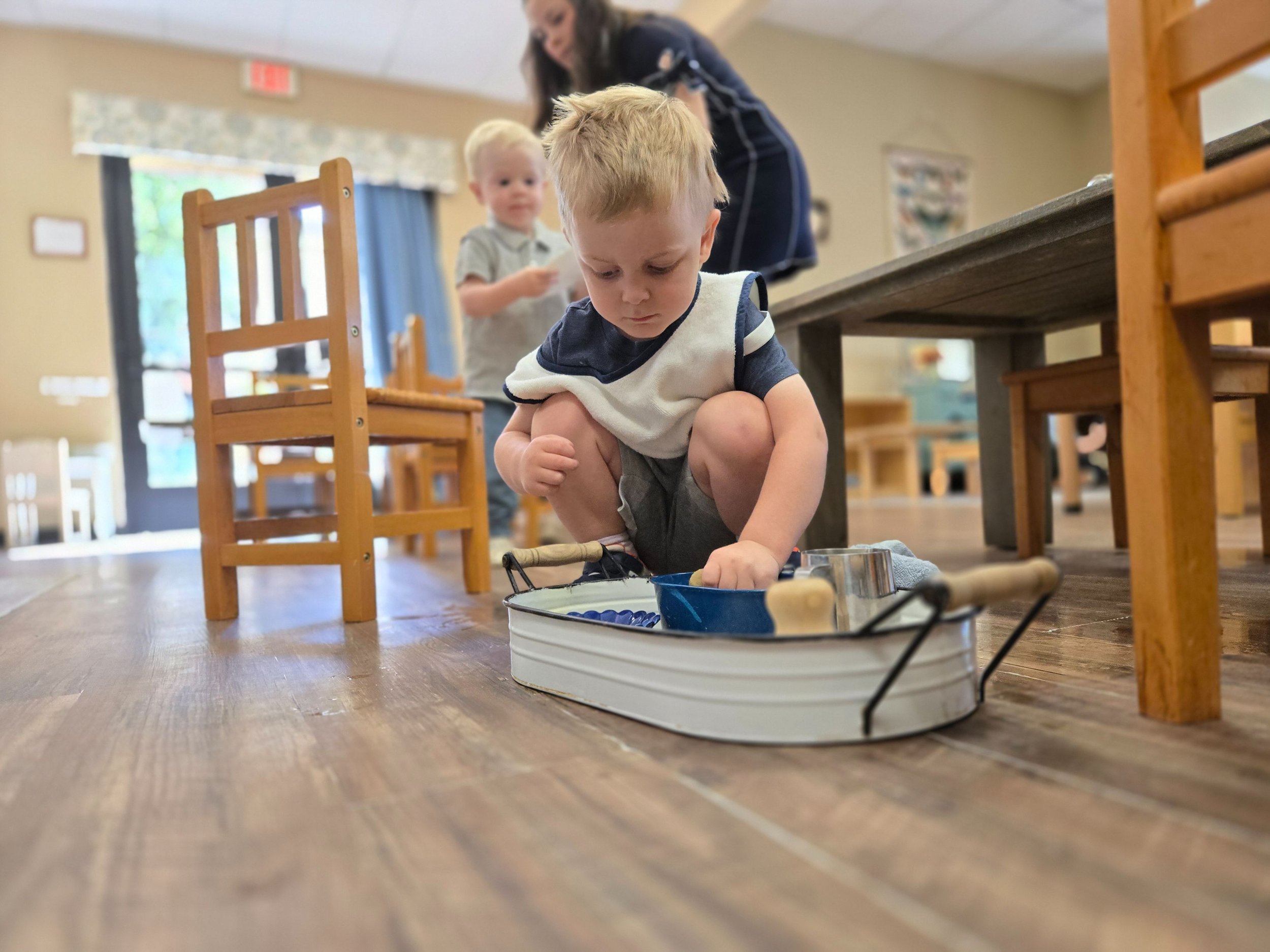
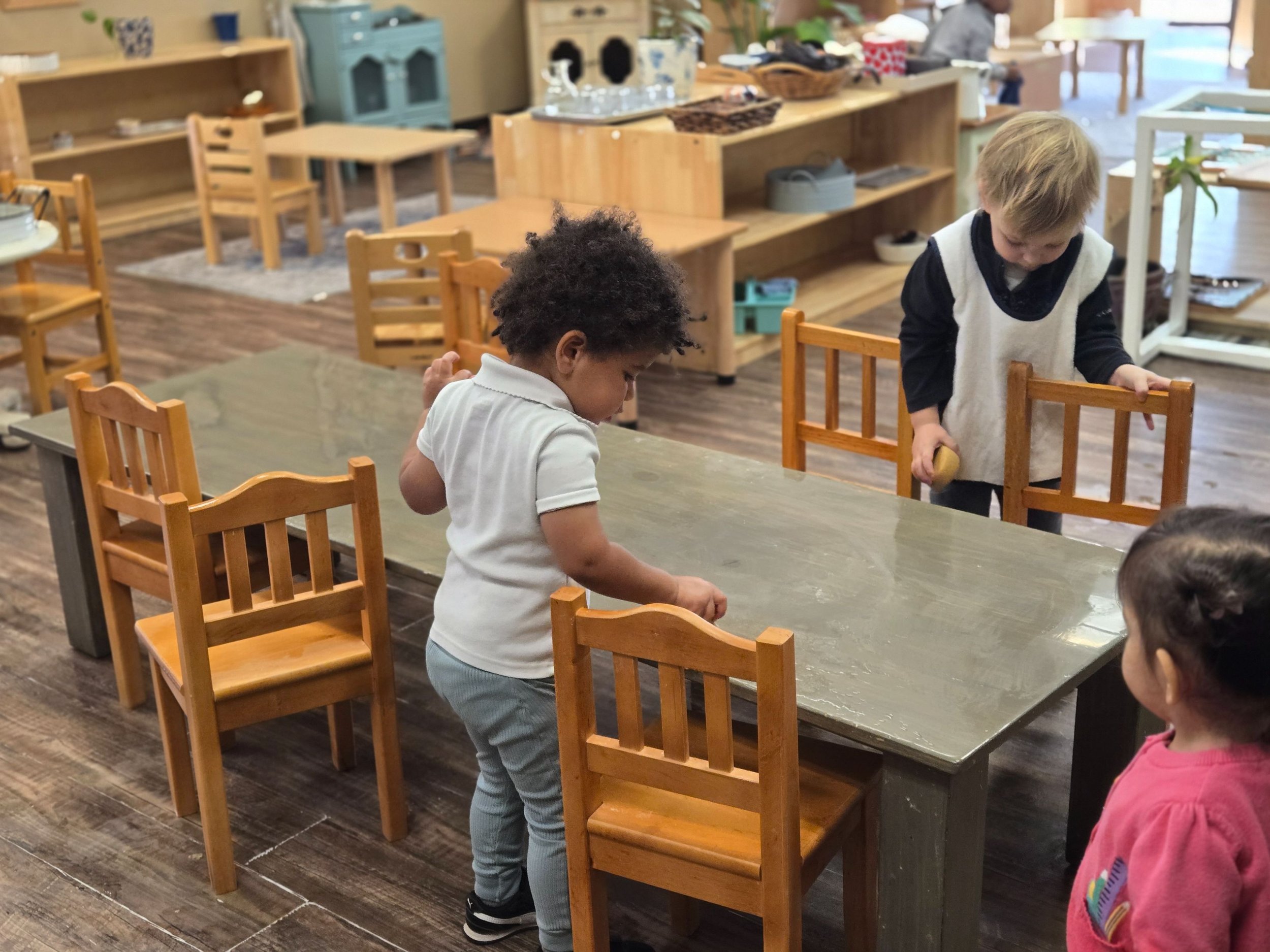
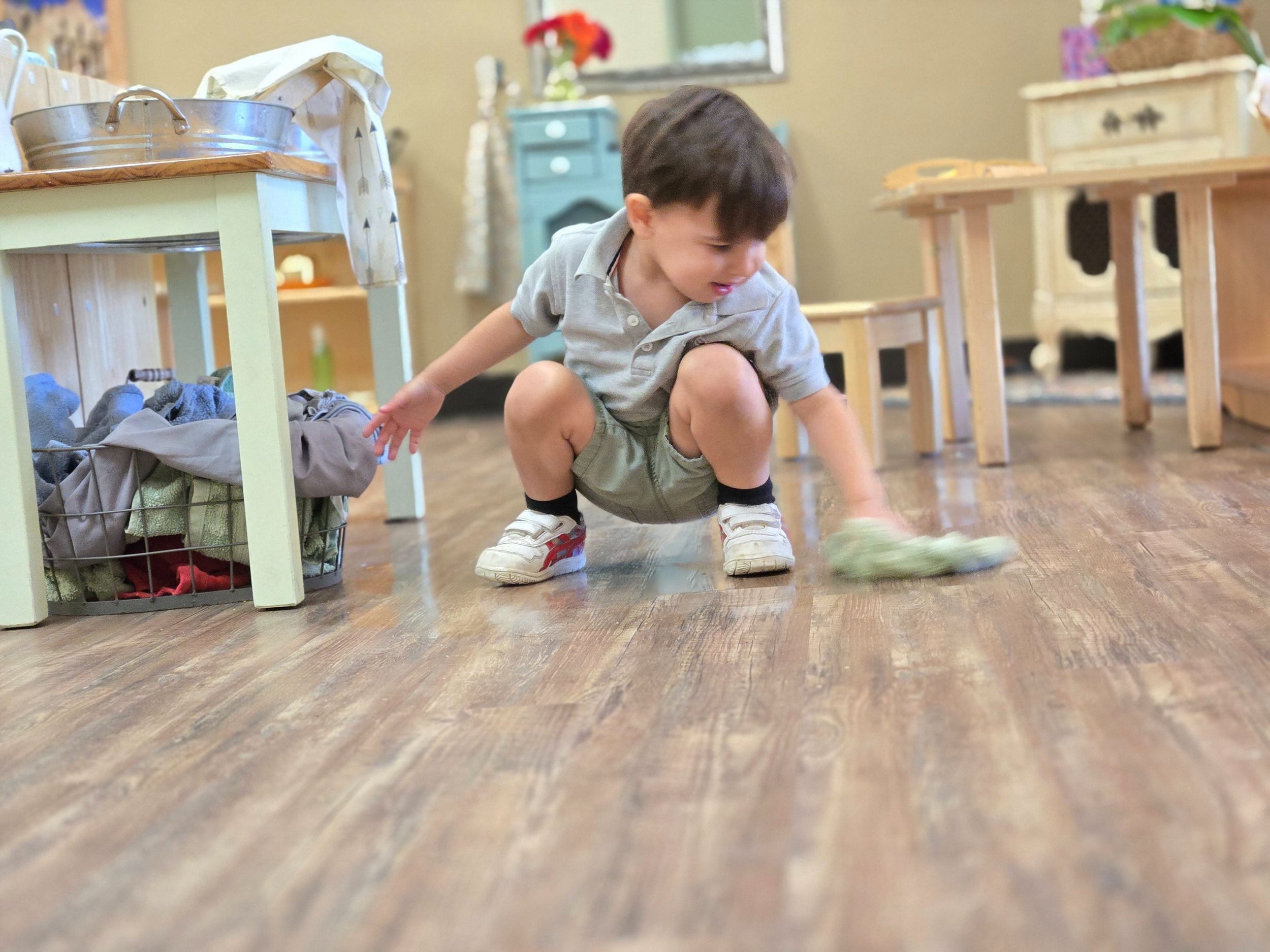
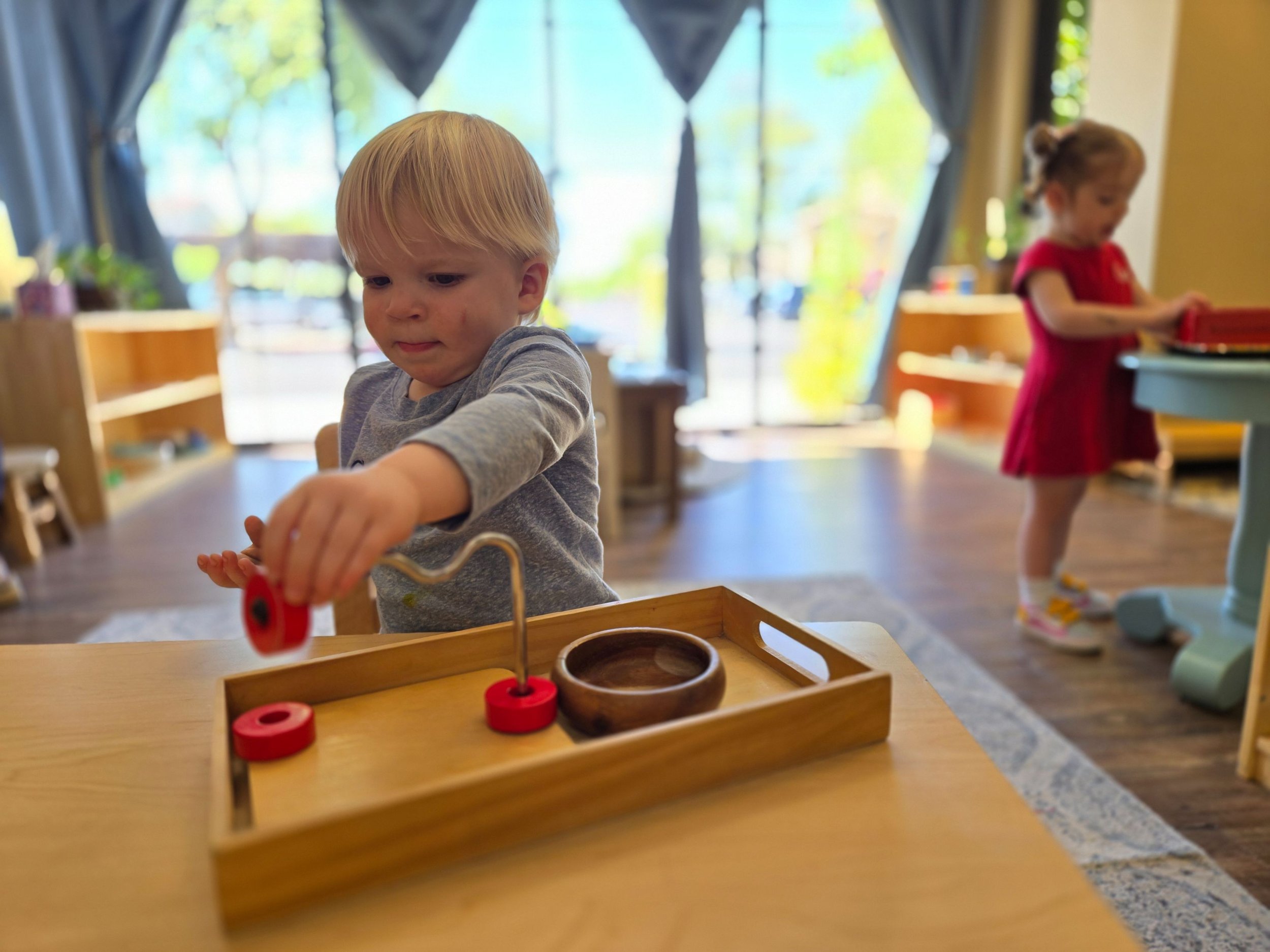
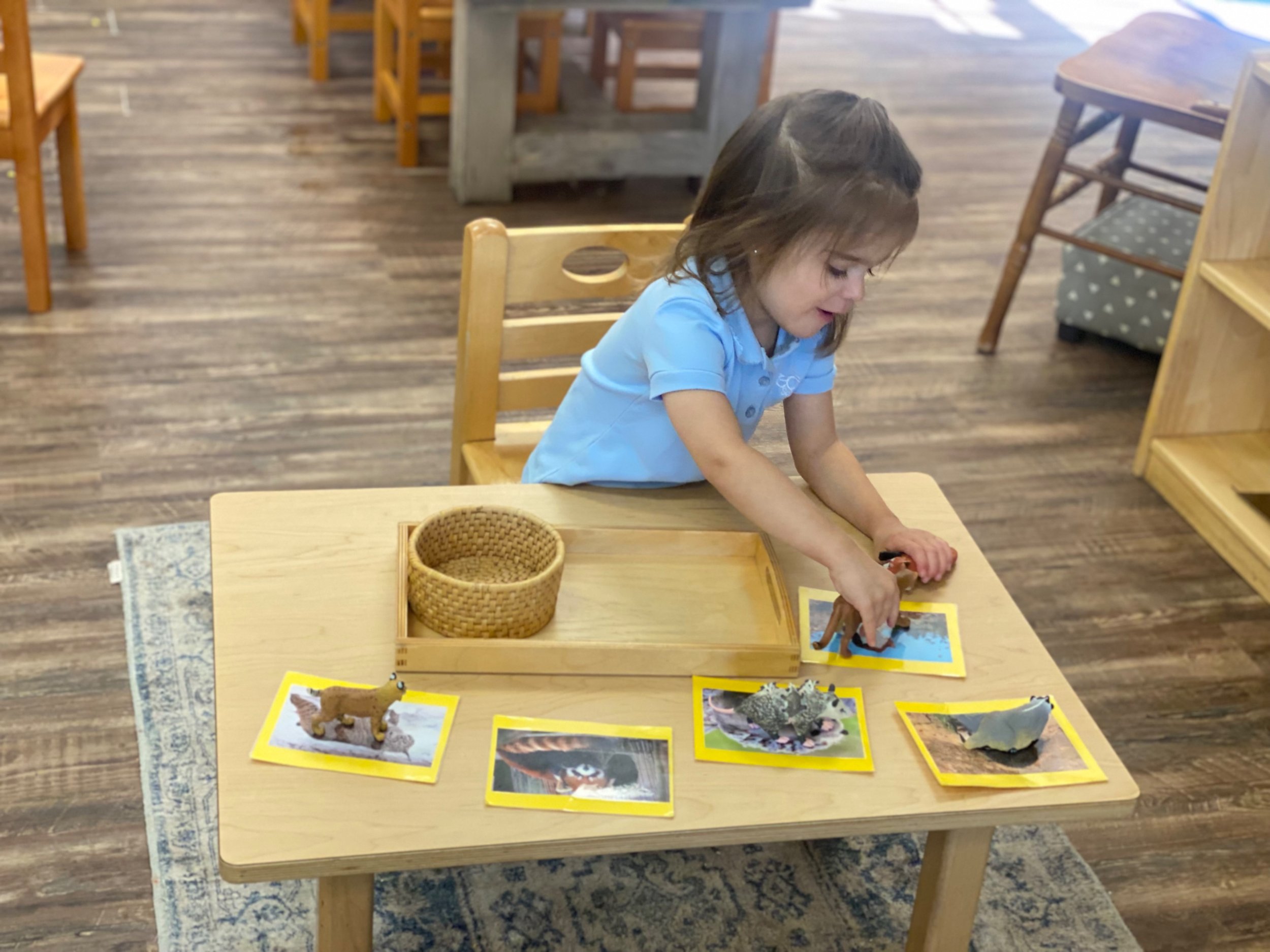
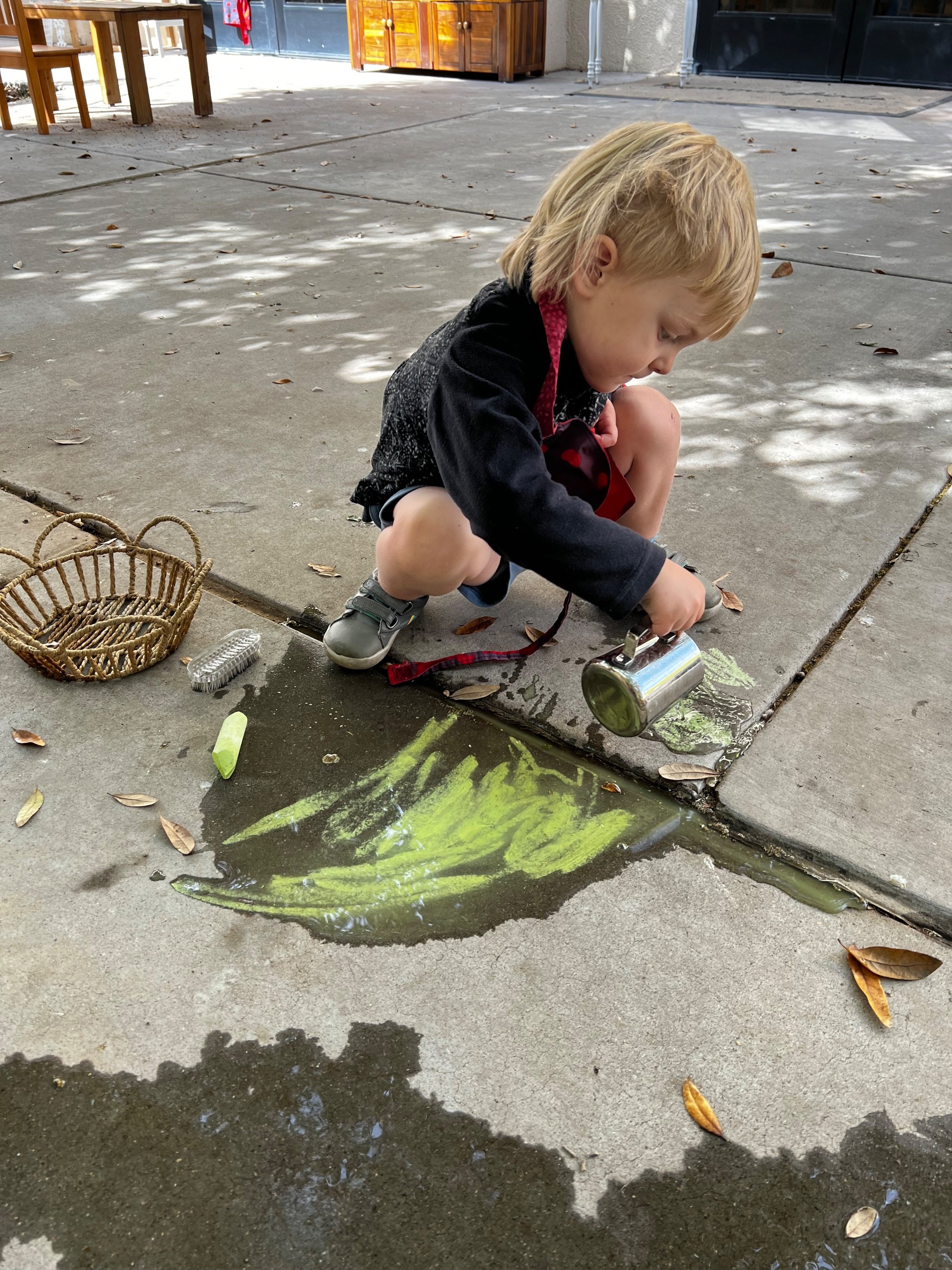

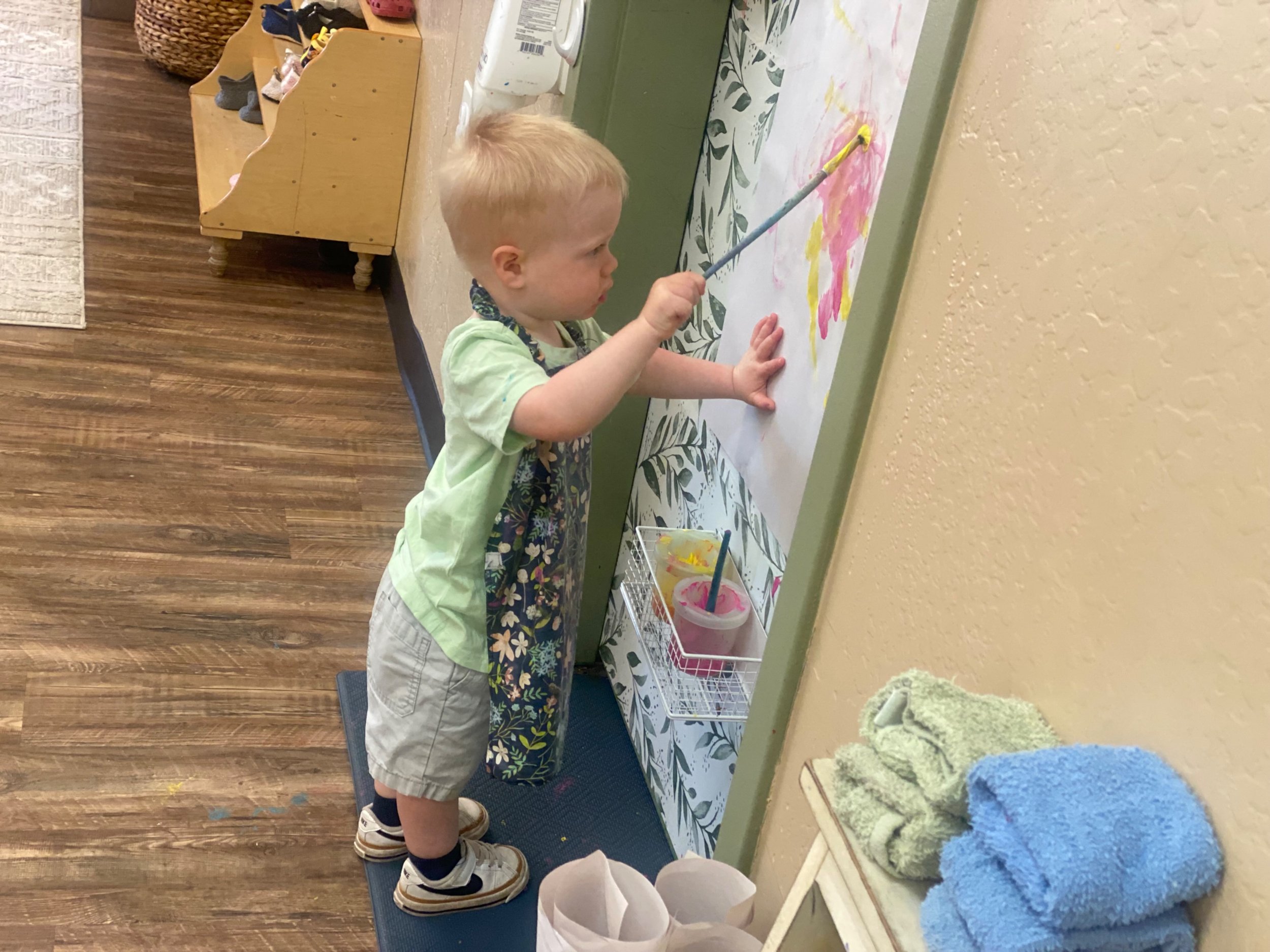
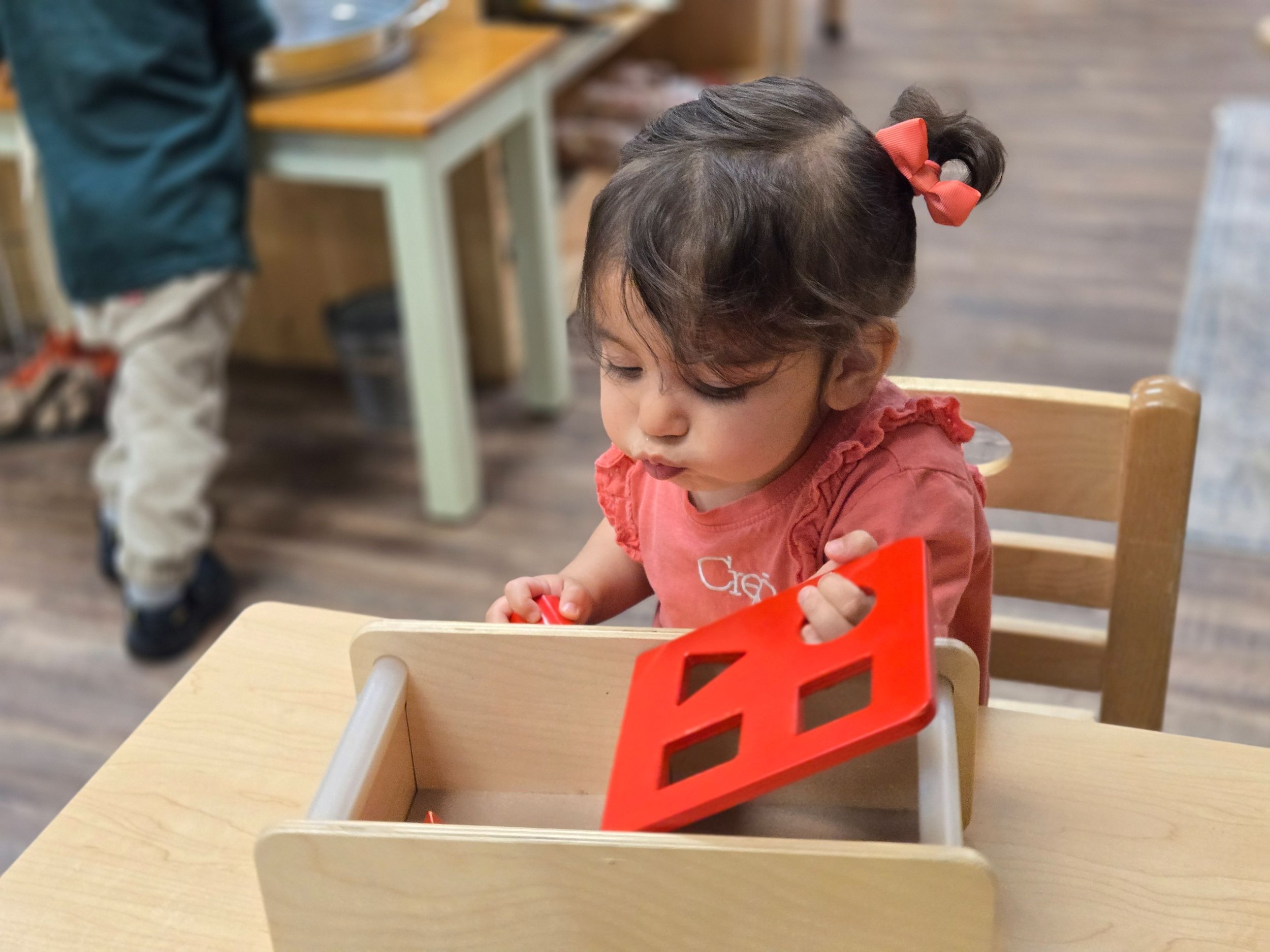
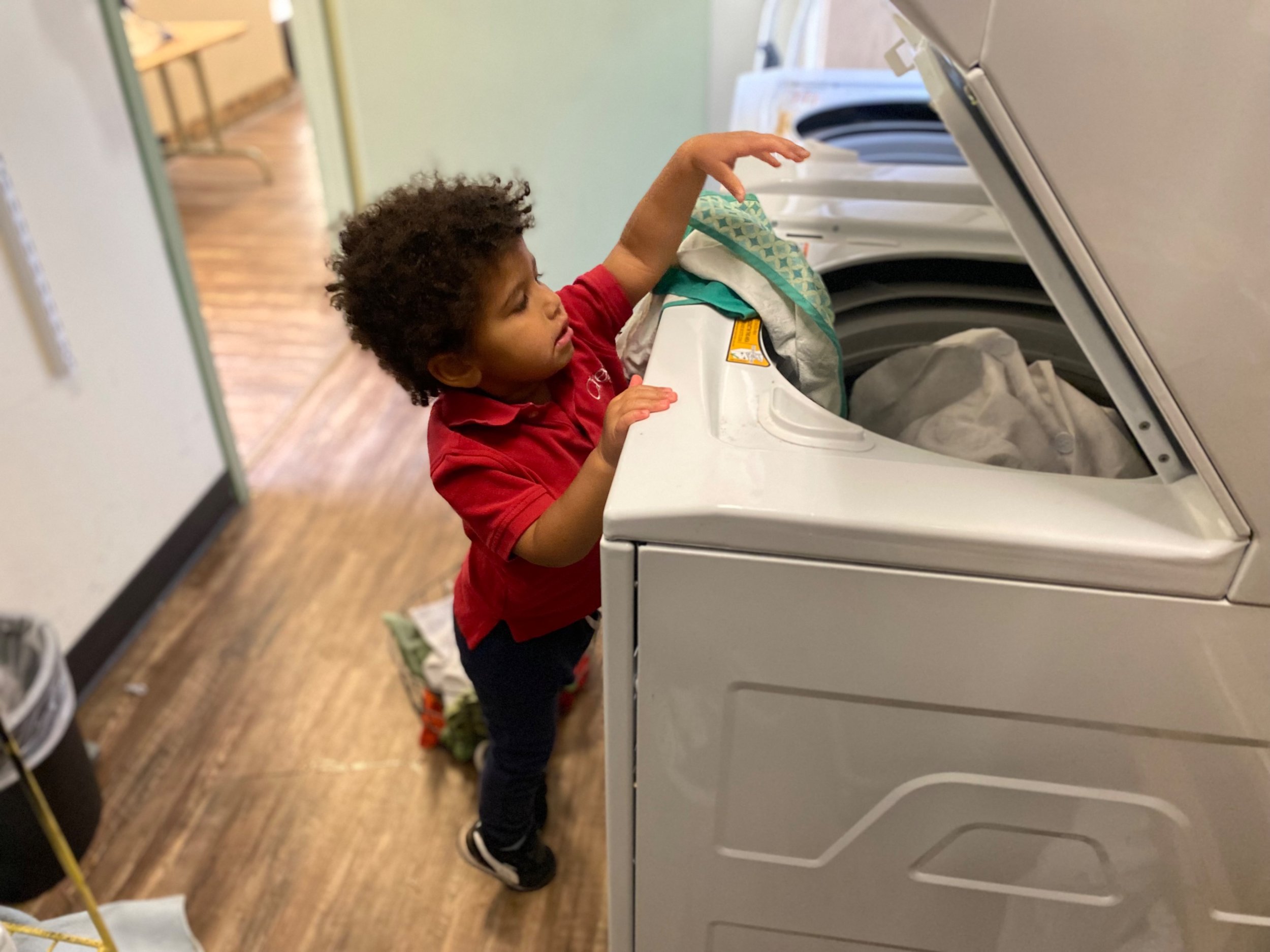
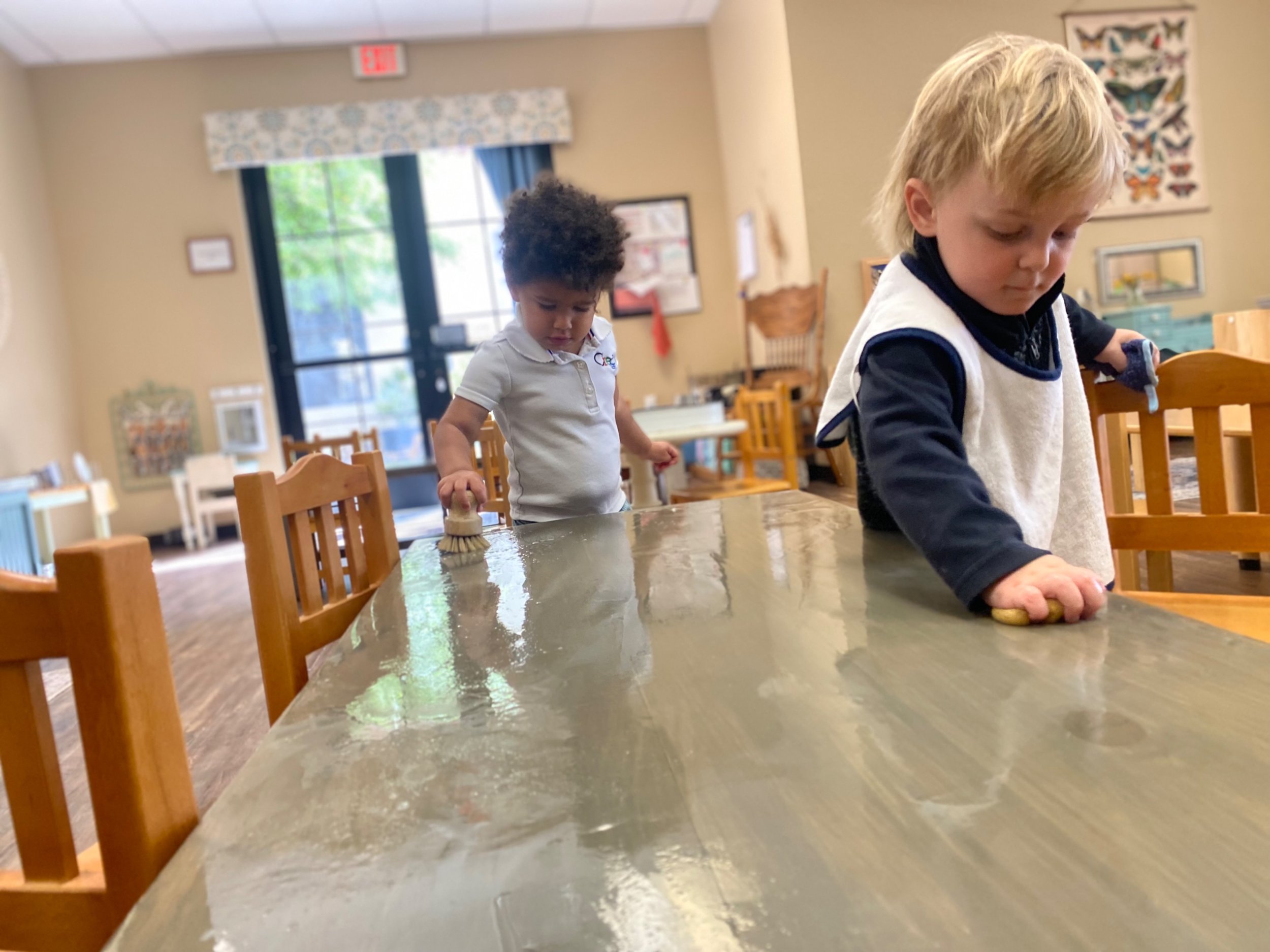
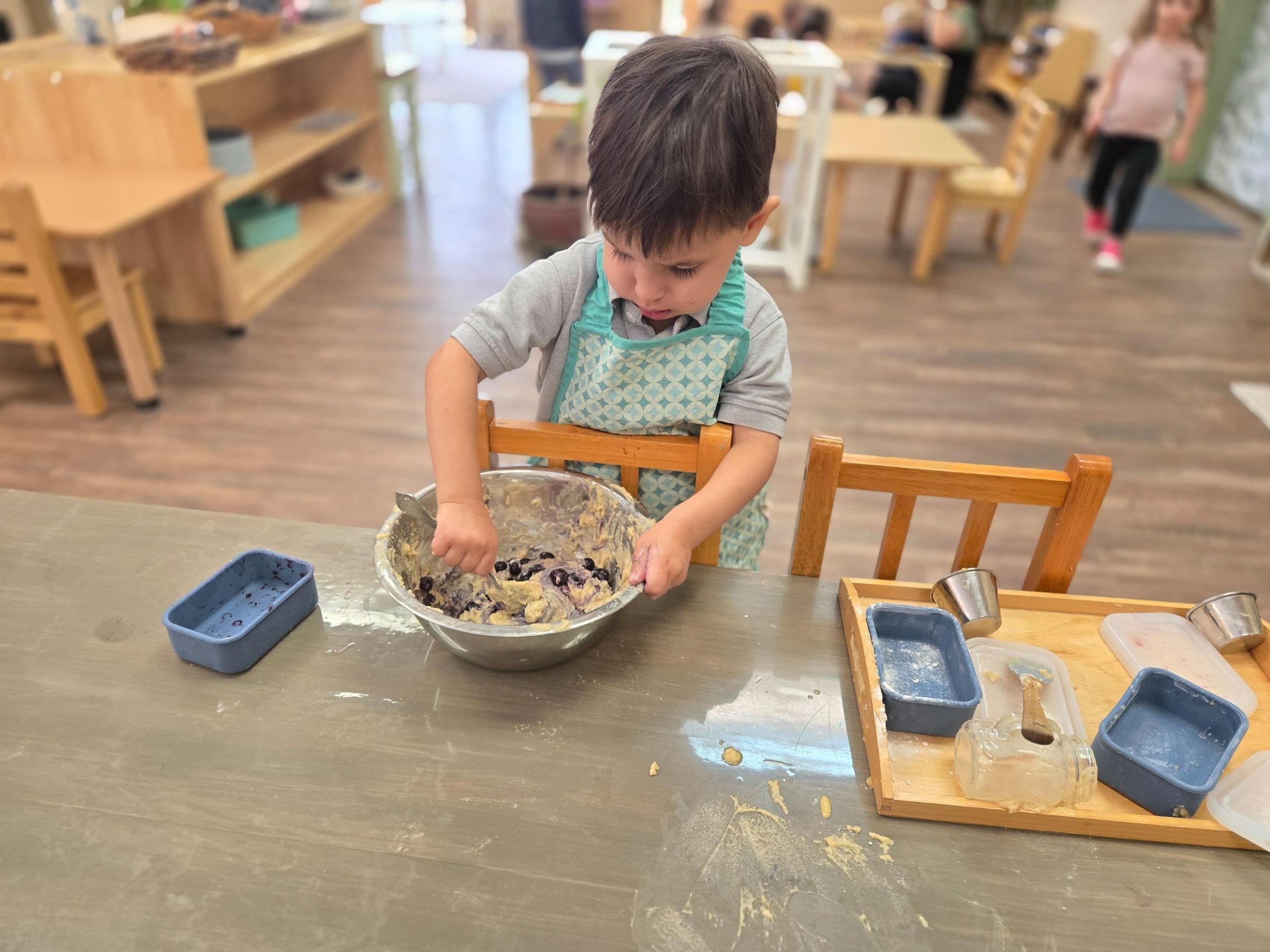

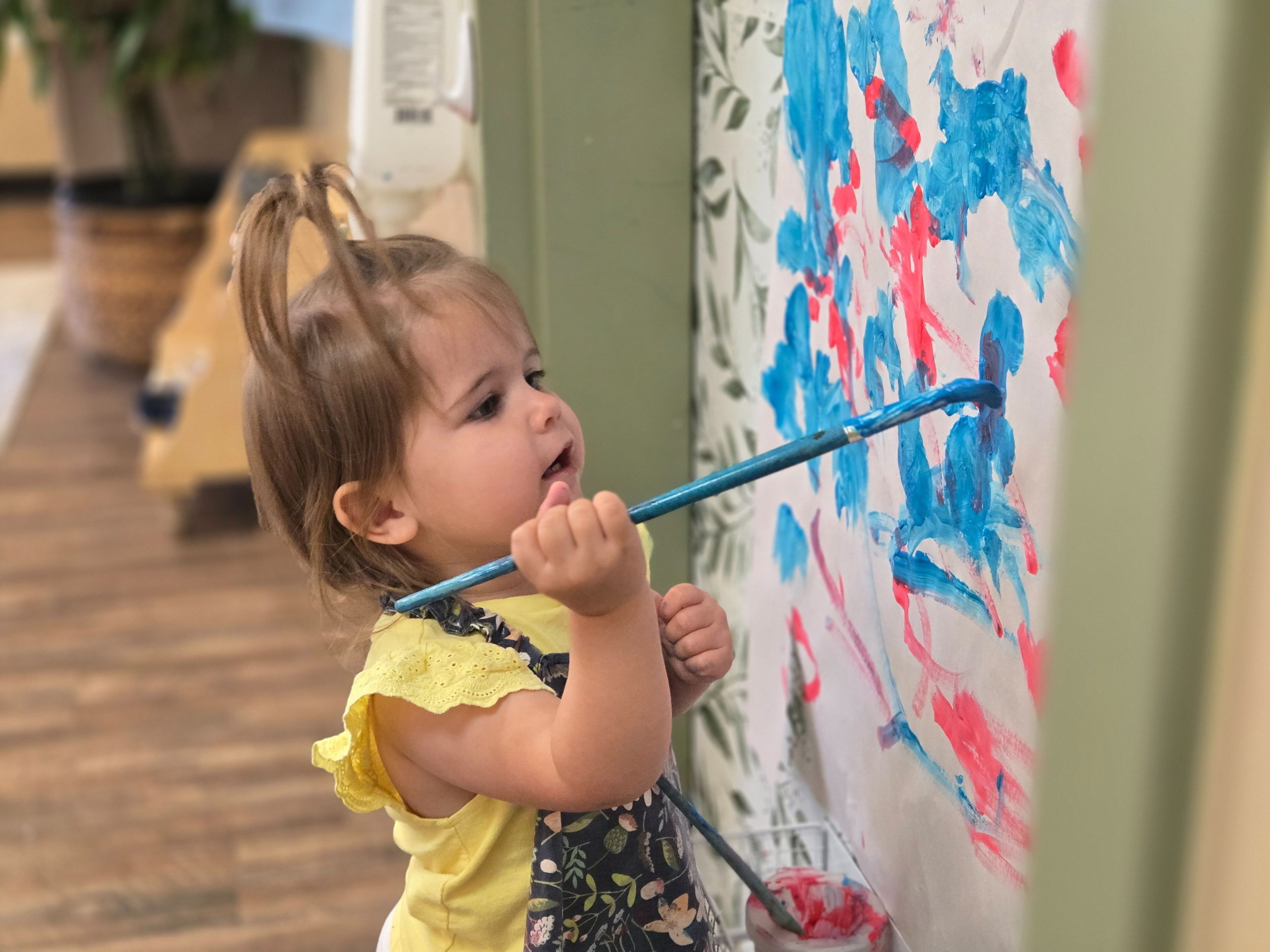
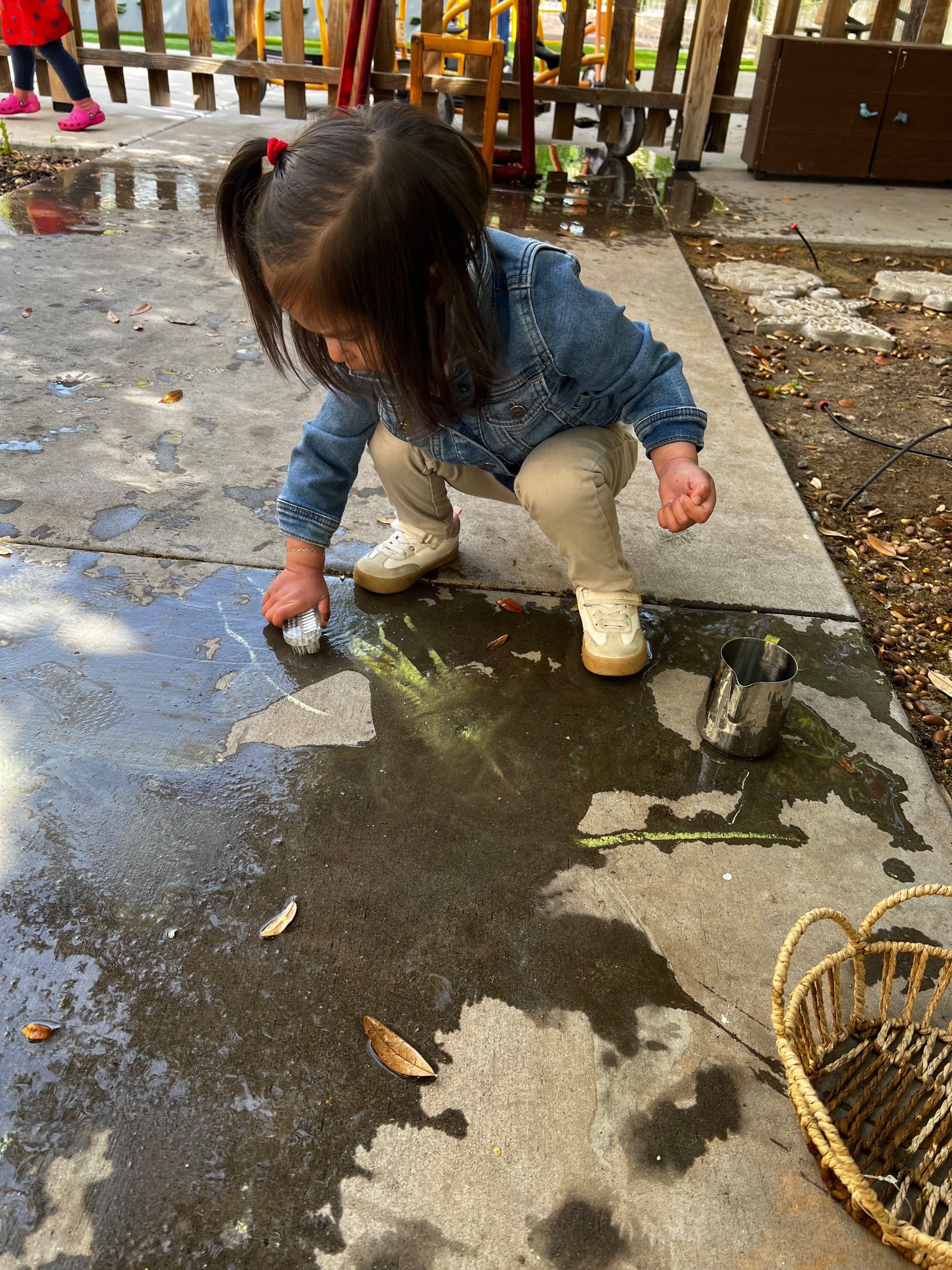
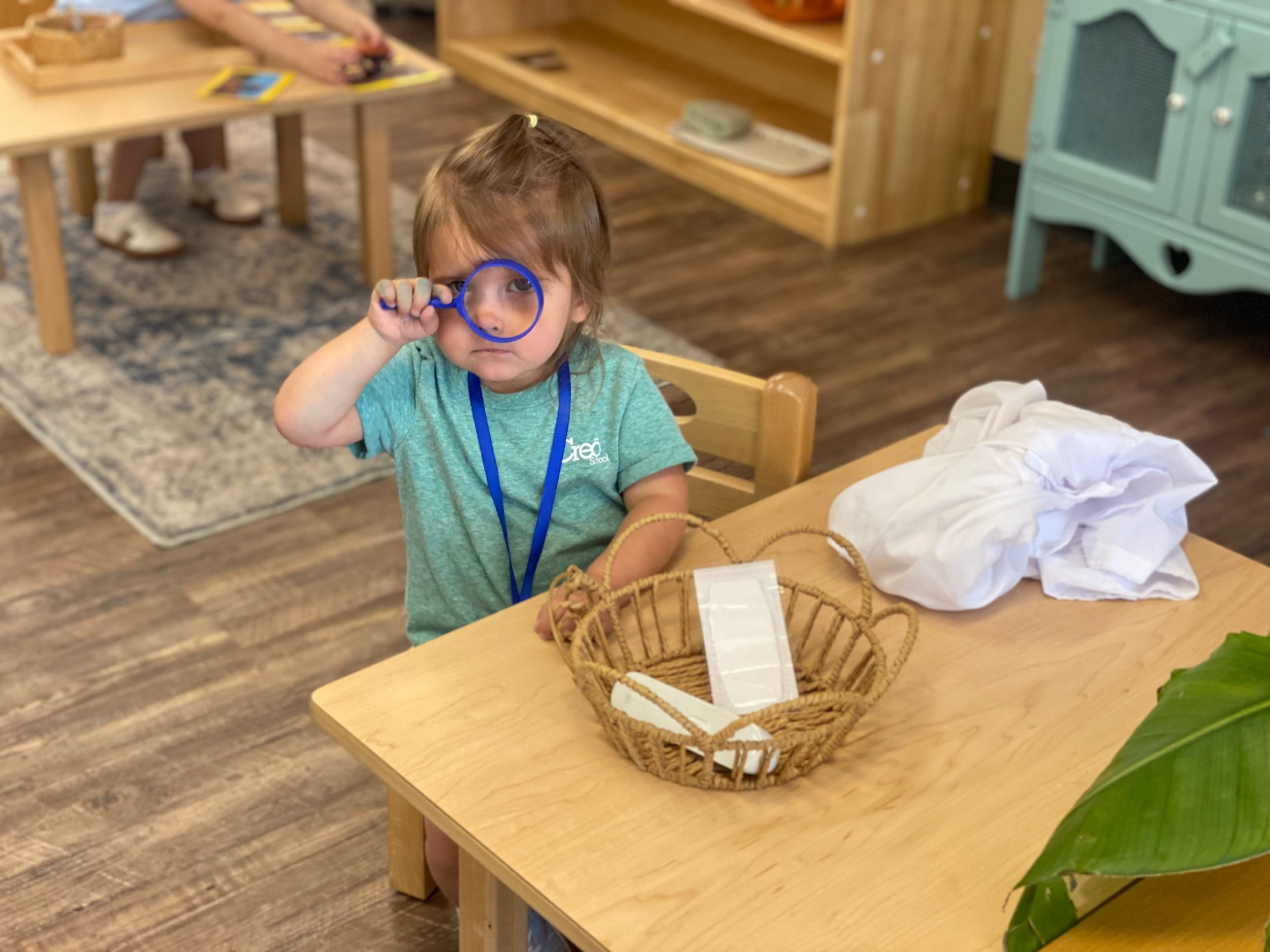
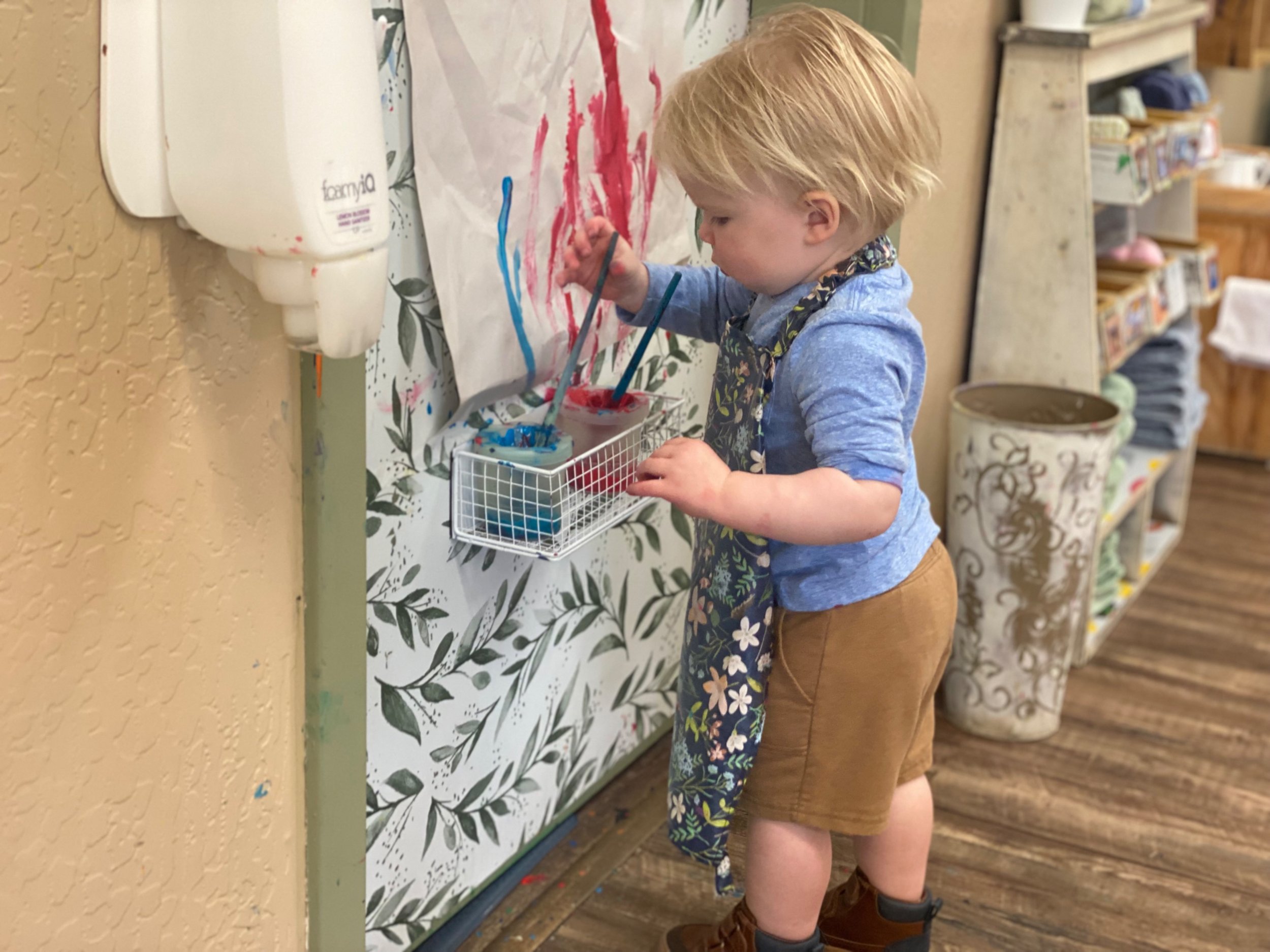
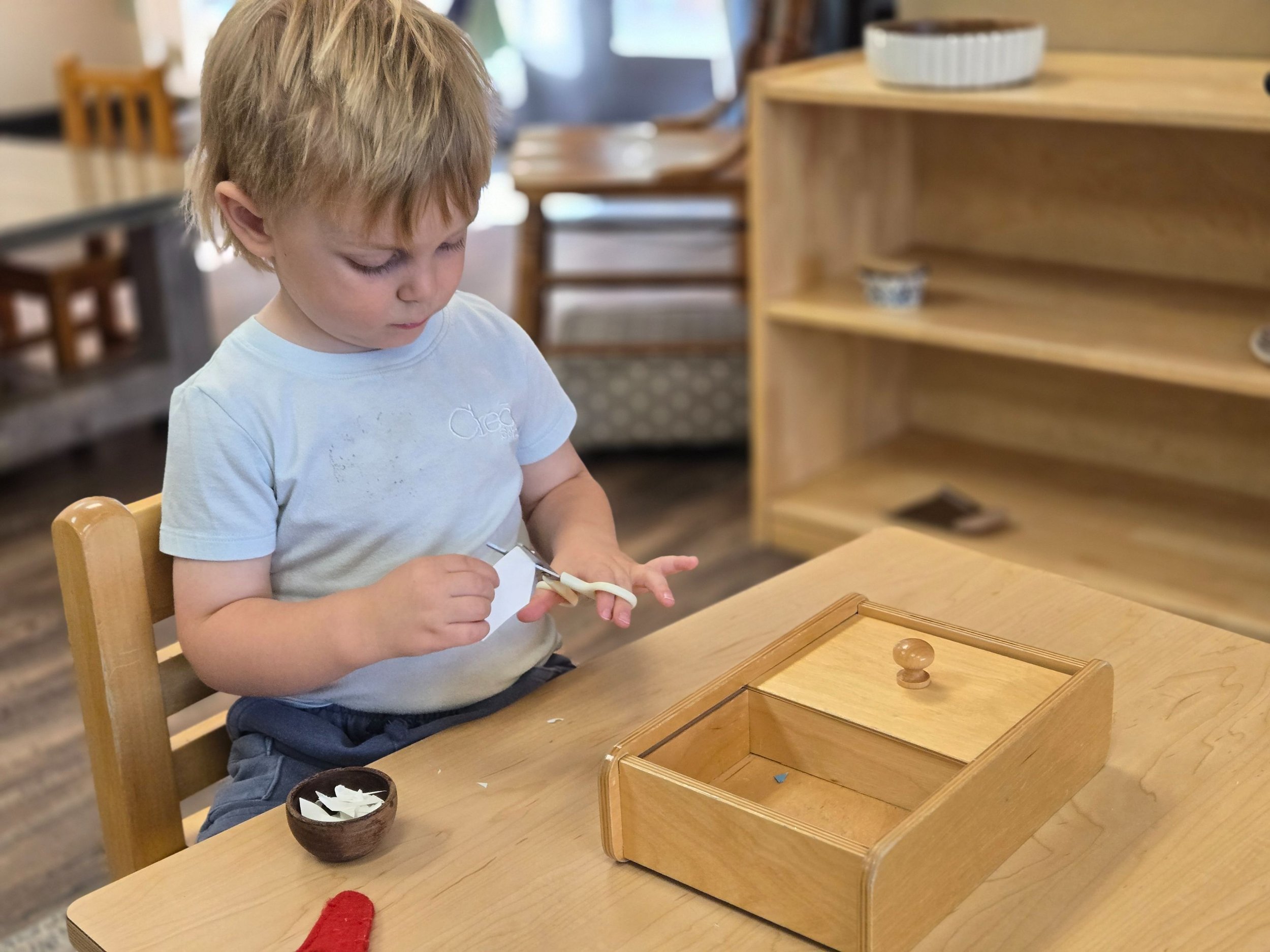
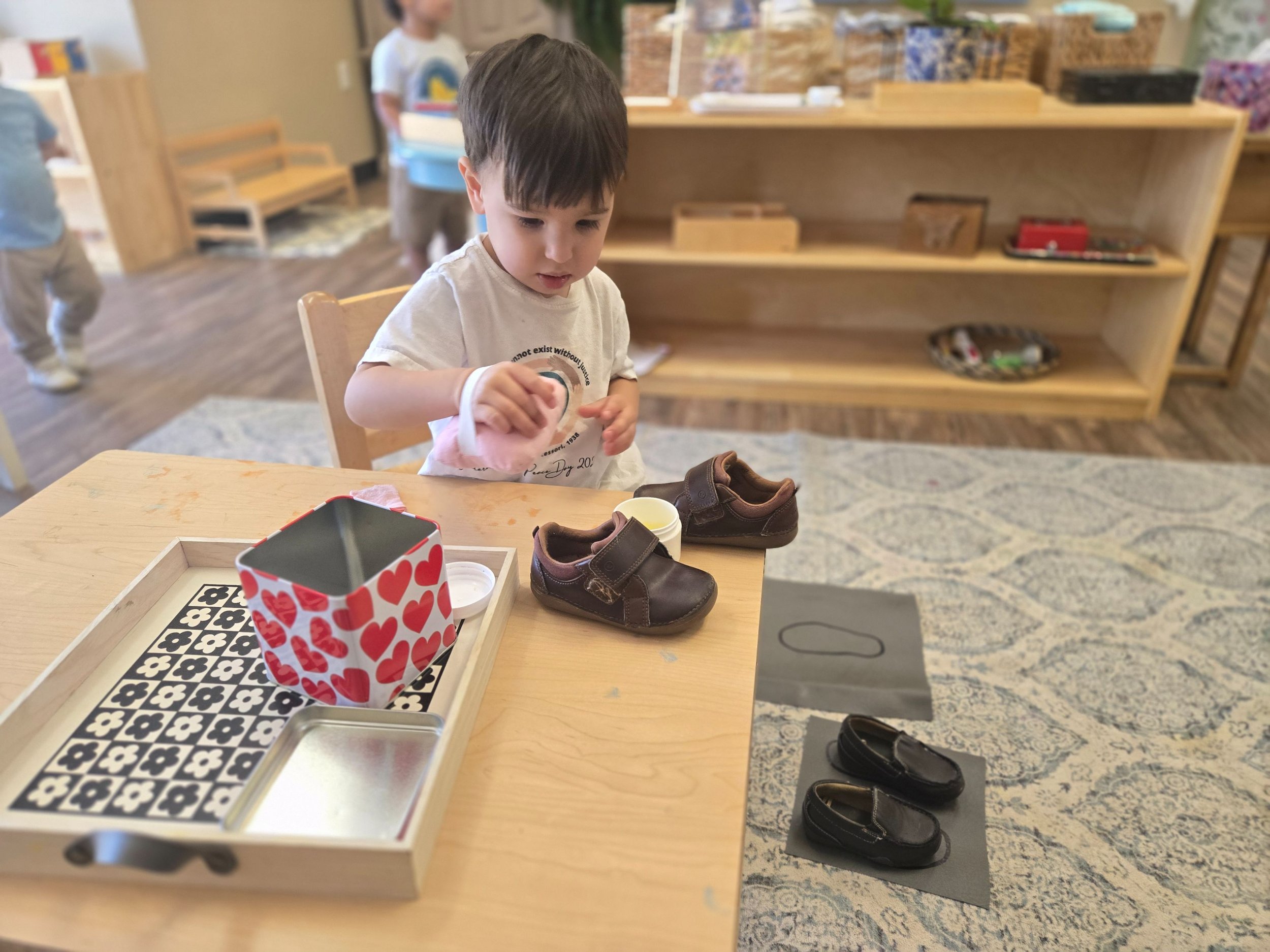
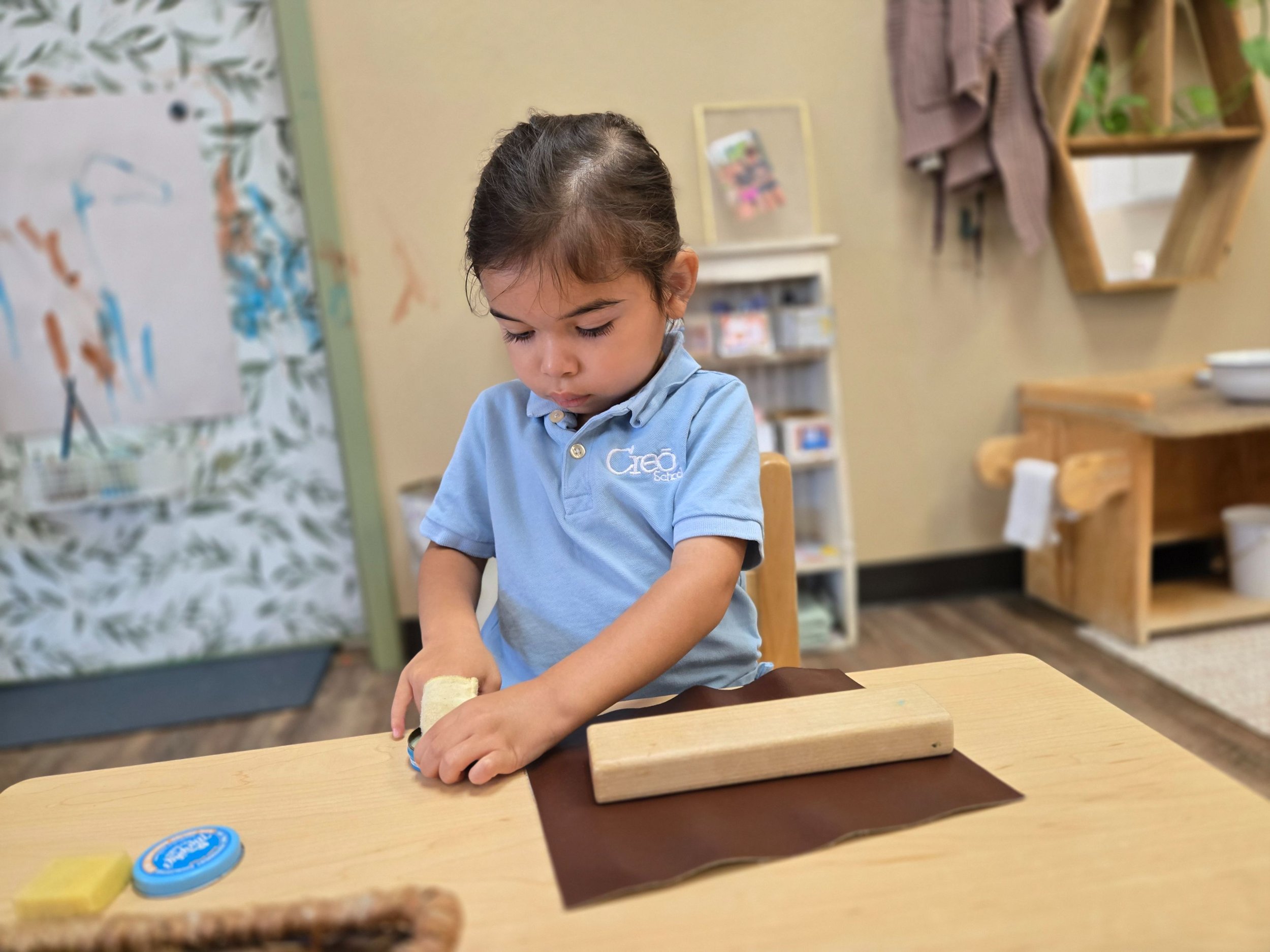
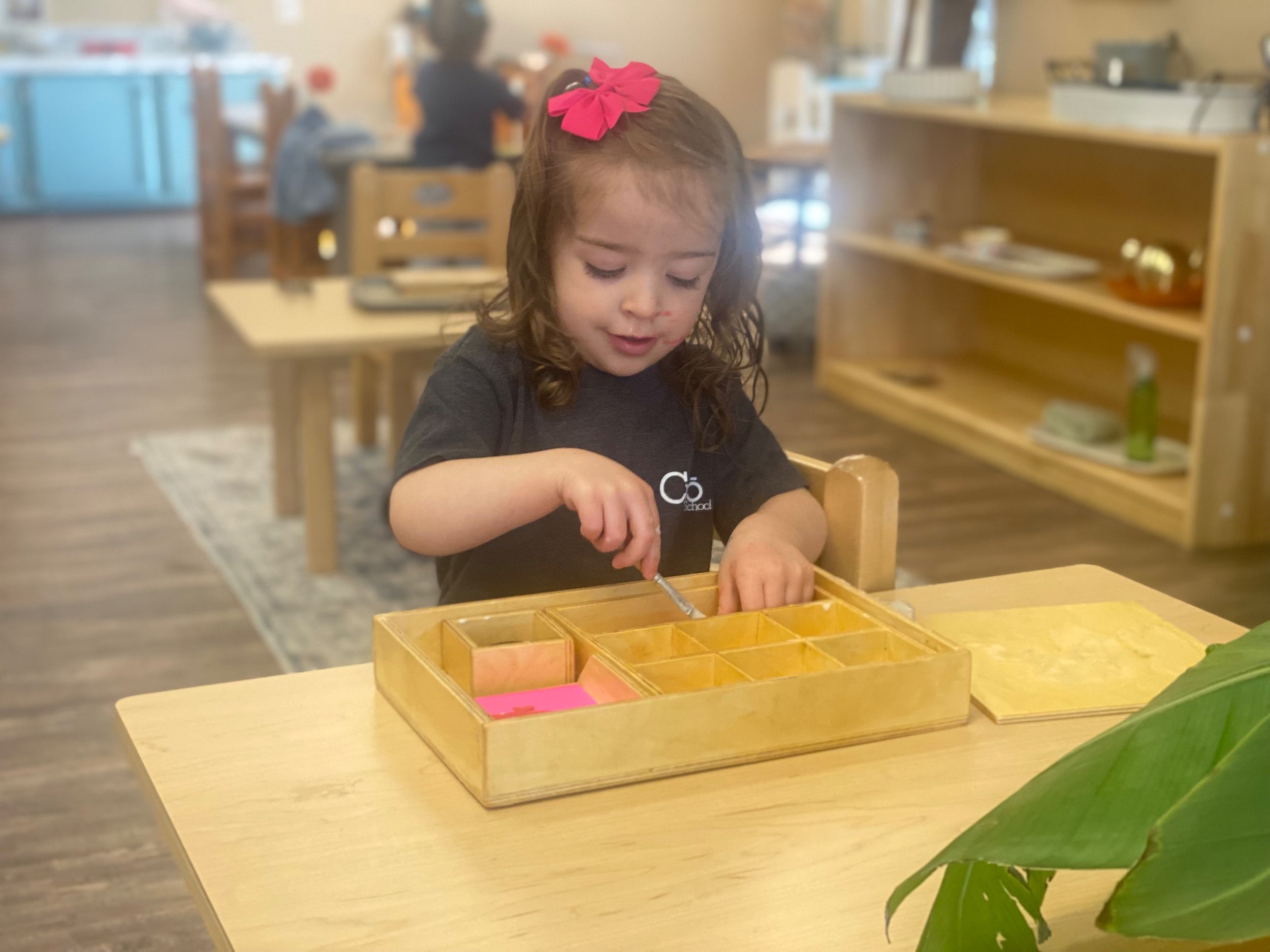
Hummingbird
Dear Hummingbird Family,
Since the weather has been getting warmer, we have cherished being outdoors more and are practicing drinking water. To drink water, the children take their cups to the lunch table, then take a pitcher to the water dispenser. At the water dispenser, the children set the pitcher on the rack and get a step stool, so that they can reach the button that releases the water. After they fill the water up in the pitcher, they take it to the table and sit down to pour some water into their cup.
Also, this month, we are pleased to have Ms. Silvia in the classroom with us to finish the semester. She has been so kind to the children and very helpful to have in the classroom. She has Montessori experience, and Spanish is her primary language. Thank you for all your support and understanding as we have had different support throughout Ms. Dafne’s maternity leave.
Lastly, we are eager to host the first ever “show me night” with the toddlers, in which your child gets to show you their favorite “works” around their classroom. We will be there to support parents in educating them in our process and to provide more information on the materials and on the way they help develop your child. We are looking forward to seeing you there!
Thank you for all your trust in us,
Ms. Kat and Ms. Silvia
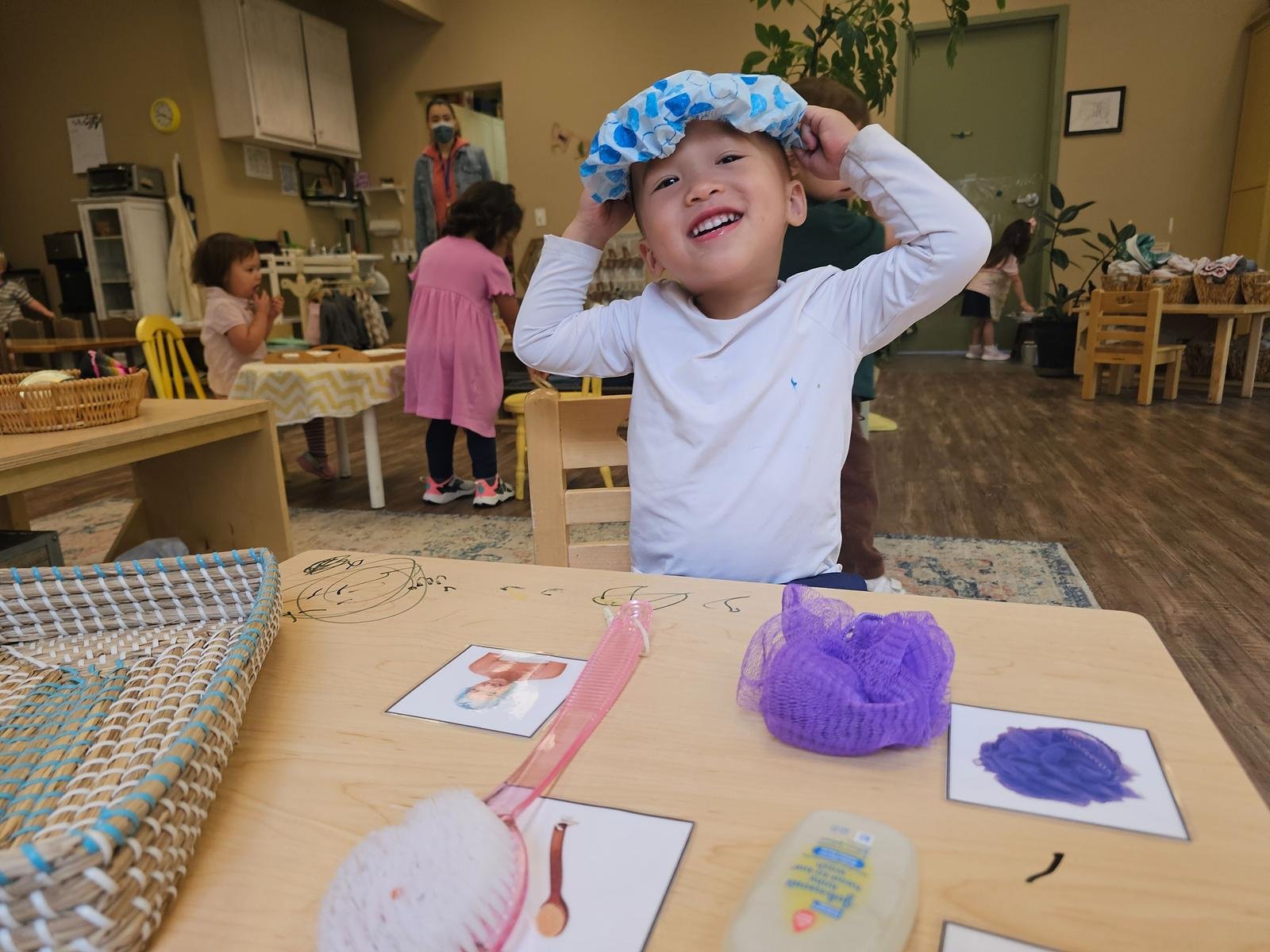





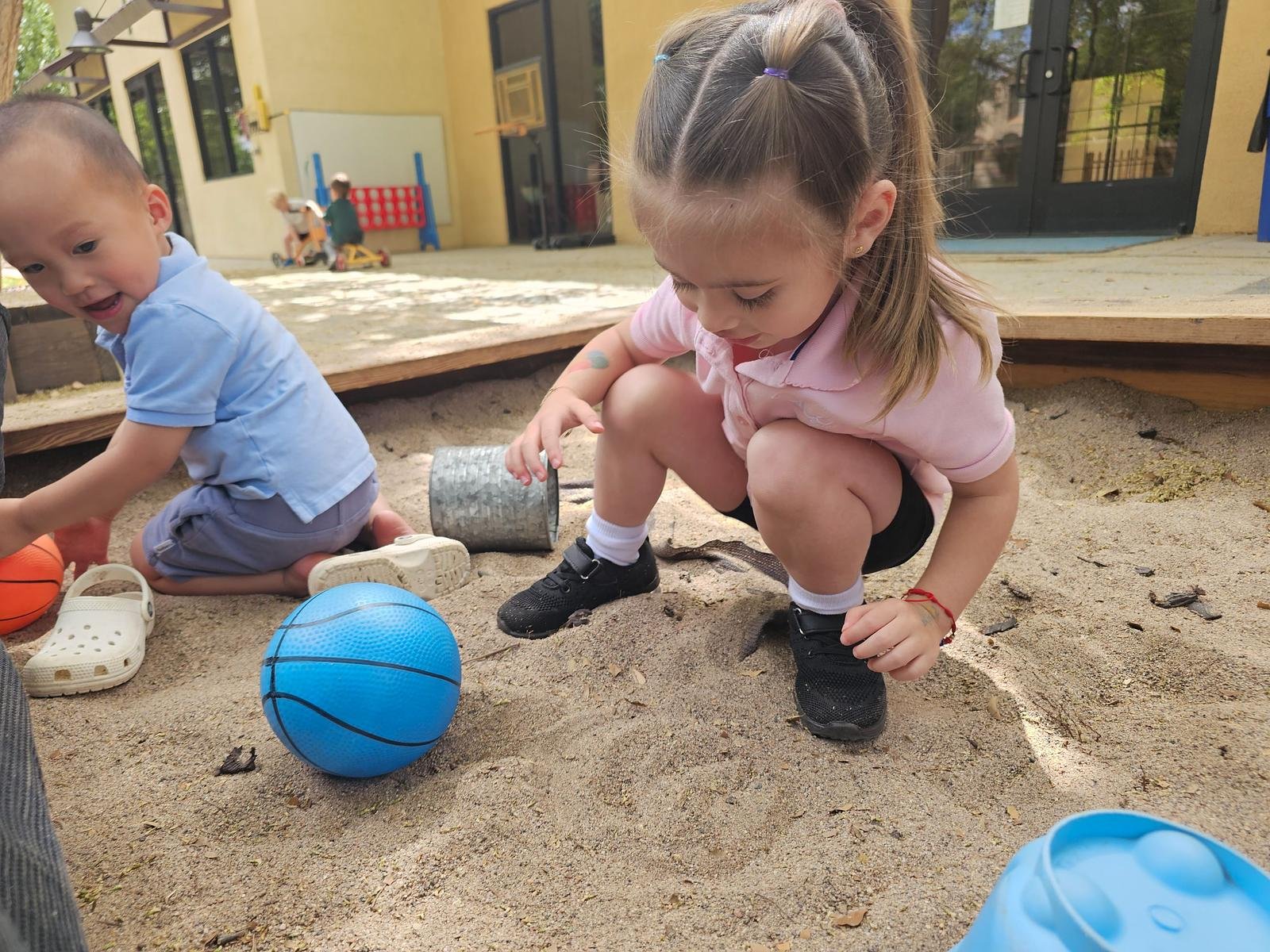














Squirrel
Hello Squirrel Parents!
A big thank you to everyone who joined us for the Creo Carnival! It was such a heartwarming experience to come together as a community. I am so grateful to be part of this special group!
This month, our focus has been all about nature, and we’ve had a blast exploring the outdoors. We were thrilled to welcome Ms. Sarahi to our Creo Community who is our outdoor environment guide, where the kids loved observing the birds, feeling the windy days, and chatting about the clouds. It’s amazing to see how curious and engaged they are with the world around them!
The children have really been drawn to practical life activities lately. These hands-on experiences are not only fun, but they also help build their cognitive skills, fine motor abilities, and a sense of order. It’s exciting to watch their growth in these areas!
Friendly reminder: please make sure to label all your child’s belongings and follow the Creo uniform policy when it comes to attire. It really helps us keep things organized.
Thanks again for your continued support and trust in us. We couldn’t do it without you!
🐿️ Ms. Nadia & Ms. Bri










